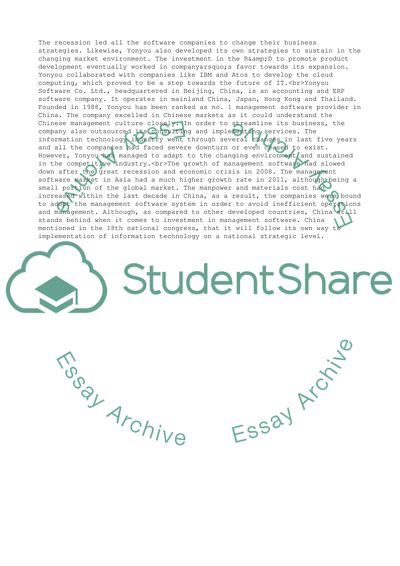Cite this document
(“Yonyous Business Operations in the Software Industry Case Study”, n.d.)
Retrieved from https://studentshare.org/management/1661575-yonyou-case-study
Retrieved from https://studentshare.org/management/1661575-yonyou-case-study
(Yonyous Business Operations in the Software Industry Case Study)
https://studentshare.org/management/1661575-yonyou-case-study.
https://studentshare.org/management/1661575-yonyou-case-study.
“Yonyous Business Operations in the Software Industry Case Study”, n.d. https://studentshare.org/management/1661575-yonyou-case-study.


